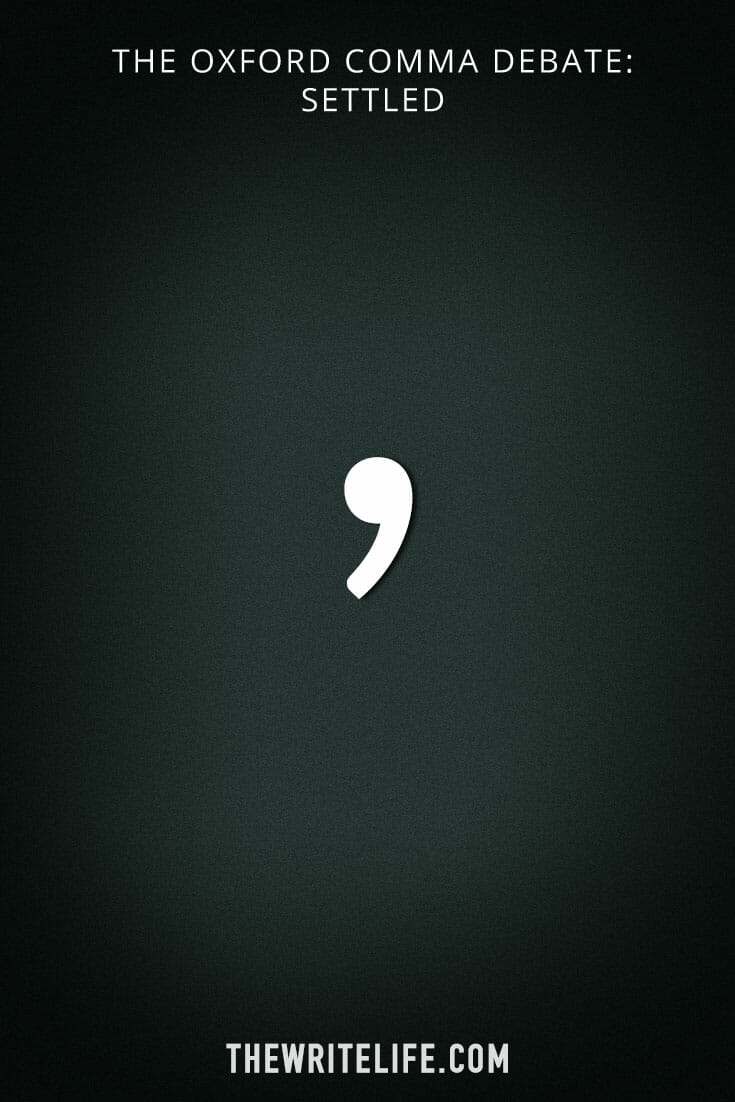Take That, AP Style! Court of Law Rules The Oxford Comma Necessary
“Who gives a $#%& about an Oxford comma?”
So goes one of my favorite lyrics by Vampire Weekend , and the answer to date has largely been: grammar nerds, Strunk & White and those who follow the infamous Chicago vs. AP style debate .
Now, we can add dairy driver to the list.
That’s because an appellate court recently ruled in favor of Maine dairy drivers in a labor dispute that hinged on the oft-debated piece of punctuation.
For anyone who’s ever wondered what all the fuss is about over Oxford commas, the circuit judge’s opinion says it all: “For want of a comma, we have this case.”
Why an extra comma matters
For those in need of a grammar refresh, the Oxford (or serial) comma is a comma placed between the last two items in a series of three or more. For instance, “I like cake, pizza, and ice cream.”
Proponents of the Oxford comma argue it’s necessary to avoid potential ambiguity.
In the example sentence, it’s clear I like three types of food in and of themselves. Remove it and the sentence reads, “I like cake, pizza and ice cream” — leading to the potential to read the last two items as one combination item. I no longer like pizza and ice cream on their own, one could argue; I like pizza and ice cream only when they’re together. (Not that there’s anything wrong with that.)
It was precisely this type of ambiguity that led to the Maine case.
The $10 million comma
In this class action lawsuit, drivers for Oakhurst Dairy sued the company over its failure to grant them overtime pay. According to Maine law, workers are entitled to 1.5 times their normal pay for any hours worked over 40 per week. However, there are exemptions to this rule. Specifically, companies don’t need to pay overtime for the following activities:
The canning, processing, preserving, freezing, drying, marketing, storing, packing for shipment or distribution of:
- Agricultural produce;
- Meat and fish product; and
- Perishable foods
Note the end of the opening line, where there is no comma before the “or.”
Oakhurst Dairy argued its drivers did not qualify for overtime because they engage in distribution, and the spirit of the law intended to list “packing for shipment” and “distribution” as two separate exempt activities.
However, the drivers argued the letter of the law said no such thing. Without that telltale Oxford comma, the law could be read to exclude only packing — whether it was packing for shipment or packing for distribution. Distribution by itself, in this case, would not be exempt.
Without that comma, as the judgemaintained, this distinction was not clearcut:
Specifically, if that exemption used a serial comma to mark off the last of the activities that it lists, then the exemption would clearly encompass an activity that the drivers perform. And, in that event, the drivers would plainly fall within the exemption and thus outside the overtime law’s protection. But, as it happens, there is no serial comma to be found in the exemption’s list of activities, thus leading to this dispute over whether the drivers fall within the exemption from the overtime law or not.
As a result, the court found in favor of the drivers, costing the dairy an estimated $10 million .

To comma, or not to comma?
As a diehard Oxford comma loyalist, this ruling made my day. While many of the sites I write for as a freelance blogger follow AP style (including this one), which is sans-serial comma, I still sneak one in when it seems needed to avoid potential confusion. This case backs up that habit as more than just an old-school tic I haven’t yet let go.
While the debate may still rage on over whether Oxford commas are necessary all the time, this ruling upholds the practice of using them when they’re essential to ward off ambiguity.
So, who gives a $#%& about an Oxford comma? The answer, according to the courts, is officially: anyone who’s interested in clarity.
(Take that, AP style!)
What do you think? Are you pro-Oxford comma as a rule, or only in specific circumstances?
Kelly Gurnett is a freelance blogger, writer and editor; follow her on Twitter @CordeliaCallsIt.